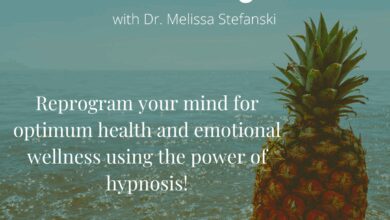Understand adrenal health for lasting energy levels

Do you feel… drained? Like you’re running on fumes, even after a full night’s sleep? Chronic fatigue isn’t just being tired; it’s a persistent, debilitating exhaustion that interferes with daily life. It’s more than just needing a coffee to get going. It’s a feeling of being utterly depleted, and it can impact everything from your work and relationships to your overall happiness. If you’re nodding along, you’re not alone. Millions struggle with chronic fatigue, and often, it’s linked to overworked adrenal glands. But there is hope. We’re going to explore how adrenal health impacts your energy levels and dive into some of the best energy supplements for chronic fatigue that can help you reclaim your vitality. This isn’t about quick fixes; it’s about supporting your body’s natural energy production and finding lasting relief. We’ll cover everything from understanding adrenal fatigue to specific nutrients that can make a real difference.
Key Takeaways
- Chronic fatigue is often linked to adrenal dysfunction, where your adrenal glands struggle to keep up with stress.
- Lifestyle changes like stress management, sleep optimization, and a balanced diet are crucial for adrenal health.
- Certain supplements, including adaptogens, B vitamins, magnesium, and CoQ10, can support adrenal function and boost energy levels.
- Addressing underlying issues like gut health and inflammation is essential for long-term energy restoration.
- It’s important to consult with a healthcare professional before starting any new supplement regimen.
- Prioritizing self-care and building resilience are key to preventing adrenal fatigue from returning.
- Supplements are supportive – they work best when combined with a holistic approach to wellness.
What Are Adrenal Glands and Why Do They Matter?
Your adrenal glands, located on top of your kidneys, are small but mighty powerhouses. They produce hormones like cortisol, adrenaline, and DHEA, which are essential for managing stress, regulating blood sugar, and maintaining energy levels. Think of them as your body’s emergency response system. When you experience stress – whether it’s physical, emotional, or environmental – your adrenal glands kick into gear, releasing cortisol to help you cope. However, chronic stress can lead to adrenal fatigue, also known as adrenal dysfunction. This happens when your adrenal glands become exhausted from constantly being overworked. This can manifest as persistent fatigue, difficulty waking up, brain fog, and a weakened immune system. Many people experiencing adrenal fatigue also report salt cravings and feeling worse in the afternoon.
Recognizing the Signs of Adrenal Fatigue
Adrenal fatigue isn’t a formally recognized medical diagnosis by all doctors, but the symptoms are very real. It’s a spectrum, and symptoms can vary from person to person. Early signs might include feeling tired even after sleeping, relying on caffeine to get through the day, and experiencing difficulty handling stress. As it progresses, you might notice more significant fatigue, muscle weakness, digestive issues, and a decreased libido. Other common symptoms include lightheadedness when standing up quickly, difficulty concentrating, and increased susceptibility to illness. If you’re experiencing several of these symptoms, it’s worth exploring your adrenal health. Consider keeping a symptom journal to track when and how you feel, which can be helpful when discussing your concerns with a healthcare provider.
Lifestyle Changes for Adrenal Support
Before jumping to supplements, let’s talk about the foundation of adrenal health: lifestyle. This is arguably the most important step. Managing stress is paramount. Techniques like meditation, yoga, deep breathing exercises, and spending time in nature can help calm your nervous system and reduce cortisol levels. Prioritize sleep! Aim for 7-9 hours of quality sleep each night. Create a relaxing bedtime routine and ensure your bedroom is dark, quiet, and cool. A consistent sleep schedule is also vital. Diet plays a huge role. Focus on whole, unprocessed foods, including plenty of fruits, vegetables, and healthy fats. Avoid sugary drinks, processed foods, and excessive caffeine, as these can further stress your adrenal glands. Regular, gentle exercise, like walking or swimming, can also be beneficial, but avoid overtraining, which can exacerbate adrenal fatigue.
Adaptogens: Nature’s Stress Busters
Adaptogens are a class of herbs that help your body adapt to stress. They work by modulating the stress response and supporting adrenal function. Ashwagandha is a popular adaptogen known for its calming and energy-boosting properties. It can help lower cortisol levels and improve sleep quality. Rhodiola rosea is another powerful adaptogen that can enhance mental performance, reduce fatigue, and improve resilience to stress. Panax ginseng can help increase energy levels and improve cognitive function. Holy basil (Tulsi) is revered in Ayurvedic medicine for its ability to reduce stress and promote overall well-being. When choosing adaptogens, look for high-quality, standardized extracts. It’s also important to start with a low dose and gradually increase it as needed.
B Vitamins: Essential for Energy Production
B vitamins are crucial for converting food into energy. They play a vital role in cellular function and nerve health. Vitamin B12 is particularly important for energy levels, as it’s involved in red blood cell production and nerve function. Many people with chronic fatigue are deficient in B12. Vitamin B5 (pantothenic acid) supports adrenal function and helps the body cope with stress. A B-complex supplement can provide a comprehensive range of B vitamins, ensuring you’re getting adequate amounts of each. Look for a B-complex that includes methylated forms of folate and B12, as these are more easily absorbed by the body.
Magnesium: The Relaxation Mineral
Magnesium is involved in over 300 biochemical reactions in the body, including energy production, muscle function, and nerve transmission. It also plays a key role in regulating cortisol levels. Many people are deficient in magnesium, due to factors like poor diet and chronic stress. Magnesium deficiency can contribute to fatigue, muscle cramps, and anxiety. Magnesium glycinate is a well-absorbed form of magnesium that is gentle on the stomach. Magnesium citrate can have a laxative effect, so it’s best to start with a lower dose.
CoQ10: Supporting Cellular Energy
Coenzyme Q10 (CoQ10) is an antioxidant that plays a vital role in energy production within cells. It’s found in every cell in the body and is essential for converting food into ATP, the body’s primary source of energy. CoQ10 levels decline with age and can be depleted by certain medications, such as statins. Supplementing with CoQ10 can help improve energy levels, reduce fatigue, and protect against oxidative stress. Ubiquinol is a more readily absorbed form of CoQ10, especially beneficial for older adults.
Gut Health and Adrenal Fatigue: The Connection
Your gut health is intimately connected to your adrenal health. An imbalanced gut microbiome can contribute to inflammation, which can stress the adrenal glands. Leaky gut syndrome, where the lining of the intestines becomes permeable, can trigger an immune response and exacerbate inflammation. Supporting gut health with probiotics, prebiotics, and a fiber-rich diet can help reduce inflammation and improve adrenal function. Consider incorporating fermented foods like yogurt, kefir, and sauerkraut into your diet.
When to Seek Professional Help
While supplements can be helpful, they’re not a substitute for professional medical advice. If you’re experiencing persistent fatigue, it’s important to consult with a healthcare provider to rule out any underlying medical conditions. A doctor can perform tests to assess your adrenal function and recommend a personalized treatment plan. They can also help you identify any nutrient deficiencies and address any underlying health issues. Don’t self-diagnose or self-treat; a professional evaluation is crucial.
FAQs
Q: How long does it take to see results from adrenal support supplements?
A: It varies, but most people start to notice improvements within 4-8 weeks of consistent supplementation and lifestyle changes. Patience is key!
Q: Can I take all these supplements together?
A: While generally safe, it’s best to introduce supplements one at a time to see how your body responds. Always consult with a healthcare professional before combining multiple supplements.
Q: Is adrenal fatigue reversible?
A: Yes, in many cases, adrenal fatigue can be reversed with consistent lifestyle changes, stress management, and targeted supplementation.
Q: What’s the best time of day to take adaptogens?
A: Ashwagandha is often best taken at night to promote relaxation and sleep. Rhodiola is typically taken in the morning to boost energy and focus.
Q: Are there any side effects to these supplements?
A: Side effects are generally mild, but some people may experience digestive upset or headaches. Start with a low dose and gradually increase it as tolerated.
Your Journey to Lasting Energy
Reclaiming your energy levels is a journey, not a destination. It requires a holistic approach that addresses your physical, emotional, and mental well-being. Remember that best energy supplements for chronic fatigue are most effective when combined with a healthy lifestyle, stress management techniques, and professional guidance. Be kind to yourself, listen to your body, and celebrate small victories along the way. You deserve to feel vibrant and energized! We’d love to hear about your experiences. What strategies have you found helpful for managing fatigue? Share your thoughts in the comments below, and don’t forget to share this article with anyone who might benefit from it.
Hi, I’m Sophia! Welcome to my blog Try Stress Management (trystressmanagement.com), where I share simple, down-to-earth ways to handle stress and bring more calm into everyday life. Think of me as your friendly guide, offering practical tips, reflections, and little reminders that we’re all figuring this out together.
When I’m not blogging, you’ll usually find me with a good book, sipping tea, or exploring new walking trails. I believe small changes can make a big difference—and that a calmer, happier life is possible for everyone.




